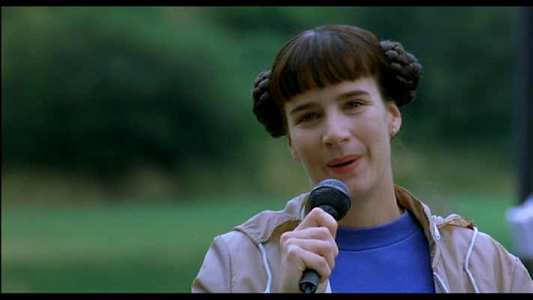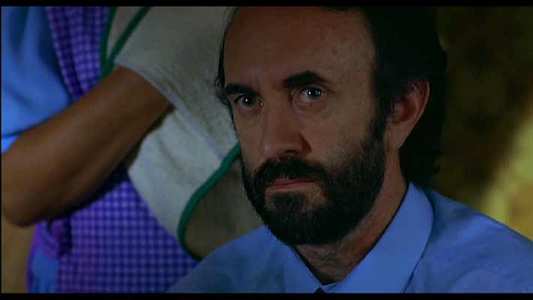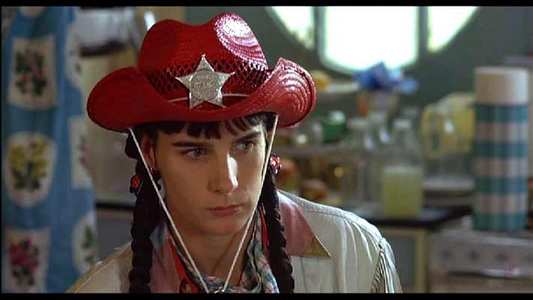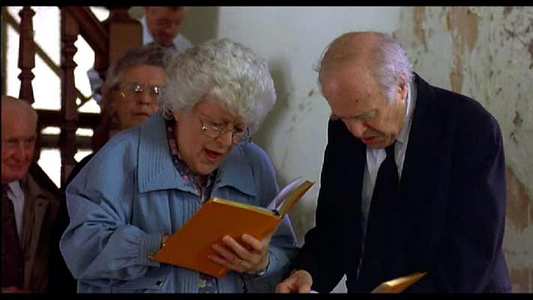Review of Very Annie Mary
Introduction
Ogw, an anonymous Welsh village populated mainly by aging codgers, people suffering from a variety of crippling degenerative diseases and some quite astonishing gay stereotypes; oh, and then there’s Annie Mary, a young woman kept under a tight leash by her domineering father (Jonathan Pryce). The death of Annie Mary’s mother and Dad’s preoccupation with cruising through the streets belting out Pavarotti has pretty much destroyed her formerly all-consuming desire of becoming an opera singer; and the town’s residents, who seem to have little ambition or means to achieve anything, don’t offer much encouragement for a budding tenor. However, beneath her bumbling, waif-like exterior, Annie Mary is the determined sort, and she seeks a way out of her mundane existence in search of her dreams, however long it takes… which is ages as it turns out.

Video
It’s not exactly a film that will dazzle you with its visual deftness, but the transfer is one of the solid anamorphic variety that never strays too far from ‘serviceable’ territory.

Audio
A stereo track, which, in this dialogue driven film, is fine. One can only presume that the lack of a 5.1 surround track is a merciful attempt to prevent us from having Puccini ringing in our ears. It’s the thought that counts.

Features
As always, it’s important to get the EPK stuff out of the way: meaningless interviews with the cast and crew, a trailer and a ‘Behind the Scenes’ feature which is, essentially, just the interviews and the trailers spliced together. The ‘On Location’ footage is better than it sounds, and the disc does have one of those Audio Descriptive tracks for the feature, of dubious use, for the visually impaired (or if you just can’t get enough of those Welsh accents.) The Director’s Commentary barely deserves the name, as director Sara Sugerman spends only about 15 minutes in total throughout the entire feature delivering trivial nuggets of information. Not good.

Conclusion
Slow, quirky, not too quaint bittersweet drama about the age old desire for the ‘path less traveled’, as filtered through the experience of the eponymous doting Welsh pixie (a genetic mutation of Amelie and Princess Leia minus the PMS) played with considerable commitment and quashed ambition by Rachel Griffiths. Jonathan Pryce is good too, despite having to play the ‘stroke victim’ as one of those ambivalent patriarchs with far too close an emotional connection to his daughter, that we seem to have begun to look back on with a confused nostalgia.
The film lingers rather too long on Annie Mary’s hopeless existence with her generally conceited community, and dotes endlessly on her pitiable relationship with her father and pious, dying best friend; Sugarman, it seems, won’t be happy until she turns Annie Mary into a self-esteem martyr. Eventually, there’s an exploitative quality to all of Annie Mary’s thwarted schemes to escape the banality of her enforced status, so much so that the film seems to resent the attempt, mocking her with cheap humor while at the same time sentimentalizing her altruism.
If the story keeps stalling, it’s a considerably more assured film than it has any right being, although it cheats us away from our deserved cathartic happy ending, in favor of a fizzled anti-climax. First-time feature director Sugarman clearly knows what kind of story she wants to tell, pity that so little is communicated but yet another well-acted slice of magical-realist misery.
Your Opinions and Comments
Be the first to post a comment!